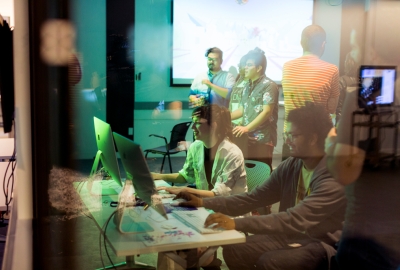This course deepens the exploration begun in How Humans Learn I by examining the Learning Sciences’ theoretical lenses—constructivism, constructionism, socio-constructivism, situativity, and cultural-context frameworks—and applying them to analyze real-world learning environments. Through weekly readings, collaborative annotations, in-class activities, and a semester-long field observation project, students bridge theory and practice, developing skills to evaluate and design instructional settings across material, social, and cultural contexts.
Course #
EDCT-GE 2175
Credits
3
Department
Administration, Leadership, and Technology


